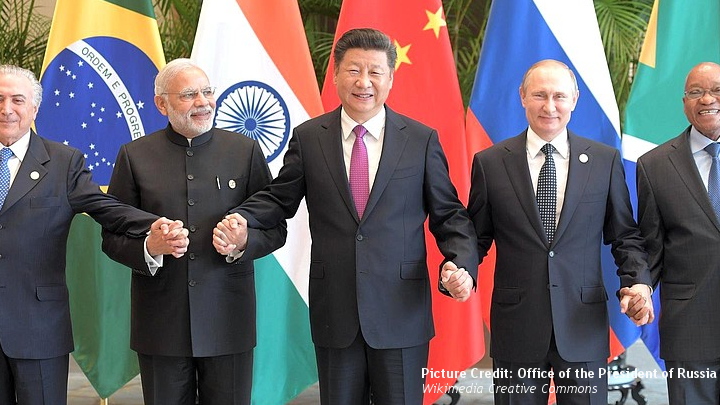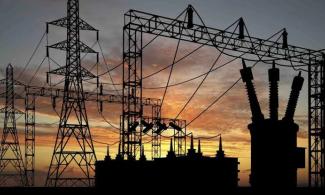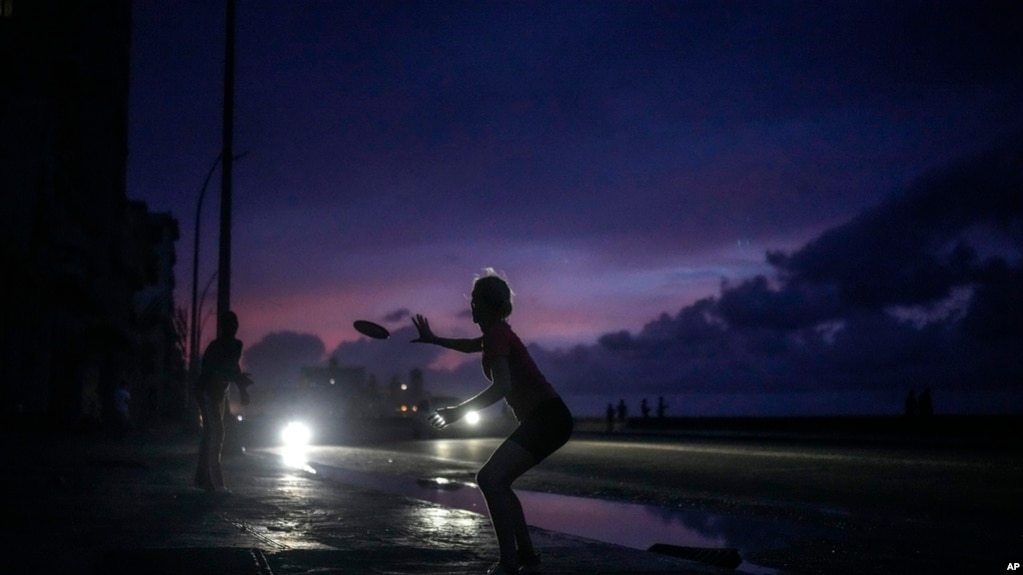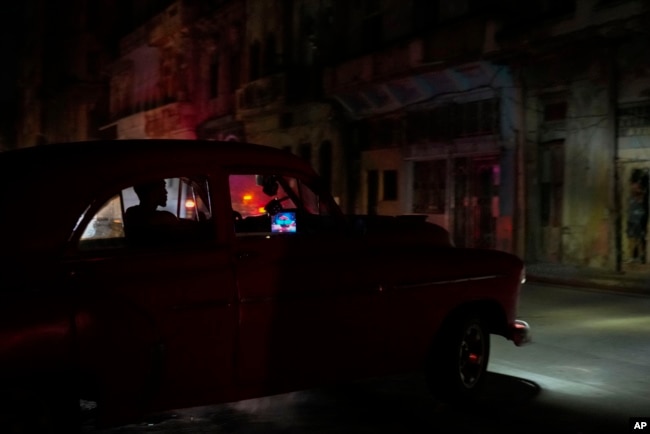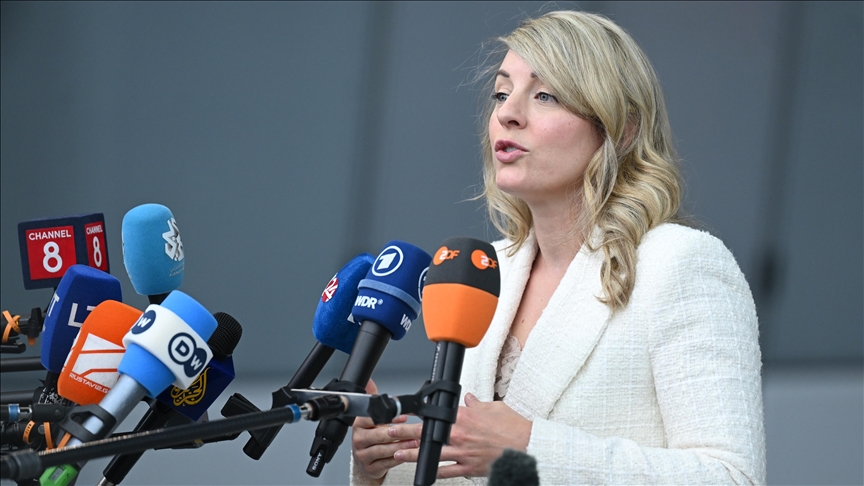An Italian navy ship has taken back to Italy the first 12 migrants from newly opened asylum processing centers in Albania following a court decision in Rome
ByVLASOV SULAJ Associated Press and LLAZAR SEMINI Associated Press
October 19, 2024

SHENGJIN, Albania -- An Italian navy ship on Saturday took back to Italy the first 12 migrants from newly opened asylum processing centers in Albania following a court decision in Rome.
The court ruling on Friday represents an early stumbling block to a five-year deal between Italy and Albania for Tirana to host 3,000 migrants per month picked up by the Italian coast guard. They will be vetted for possible asylum in Italy or to be sent back to their countries.
Italian Premier Minister Giorgia Meloni has hailed it as a new “model” to handle illegal migration.
The court in Rome rejected the detention of 12 of the migrants, arguing they cannot be sent back to their countries or origin -- Bangladesh and Egypt -- because the court did not deem them to be safe enough.
The Italian navy ship took the 12 from the port of Shengjin, 66 kilometers (40 miles) northwest of the capital Tirana. After arriving there this week, the four other migrants had already been rejected by center staff, two as vulnerable after undergoing health checks and two for being minors.
Each migrant’s detention must be reviewed by special migration courts in Italy under Italian law.
Meloni slammed the judges following the ruling, and said that deeming countries such as Bangladesh and Egypt unsafe means that virtually all migrants would be barred from the Albania program, making it unworkable. Interior Minister Matteo Piantedosi said the government would appeal the ruling.
Speaking to reporters during a trip to Lebanon, Meloni said she would convene a Cabinet meeting Monday to discuss the issue.
“We’ll meet to approve some norms that will allow us to overcome this obstacle,” Meloni said. “I believe it’s up to the government and not magistrates to establish which countries can be considered safe.”
Although Bangladesh and Egypt are not at war or facing any large refugee crises, the Rome judges said their decision was based on recent international rulings that consider discrimination or persecution in even a part of a country as grounds for such a determination.
Italy has agreed to welcome those migrants who are granted asylum, while those whose applications are rejected face deportation directly from Albania.
The controversial agreement to outsource the housing of asylum-seekers to a non-EU member country has been hailed by some countries that, like Italy, are experiencing a high level of migrant arrivals.
The agreement was endorsed by European Commission President Ursula von der Leyen as an example of “out-of-box thinking” in tackling the issue of migration into the European Union.
Human rights organizations considered it as setting a dangerous precedent.
___
Semini reported from Tirana. Follow him at https://x.com/lsemini
___
Follow AP’s global migration coverage at https://apnews.com/hub/migration
The first batch of immigrants sent to Albania to undergo accelerated border procedures under the Italy-Albania deal on Wednesday, Oct, 16, 2024. -
By Dominic Wabwireh
with AP Last updated:
Migration agreement between Libya and Italy
Italy’s Prime Minister Giorgia Meloni criticized judges on Friday for ruling against the right-wing government’s initiative to hold 12 migrants at newly established centres in Albania.
This marks a significant obstacle in the administration’s strategy to transfer some of its migrant processing to the Balkan nation.
During a visit to Lebanon, Meloni told reporters that labelling countries like Bangladesh and Egypt as unsafe would effectively exclude nearly all migrants from the Albania program, rendering it impractical.
Meloni argued, ''It's challenging to address the needs of this nation when there is opposition from certain institutions that are supposed to assist in solving its issues. I believe the ruling by the judges in Rome is biased. This is evident as some judges had already criticized the agreement with Albania before even considering the details. It's also noteworthy that this decision was announced yesterday by some members of the Democratic Party."
The ruling marks an initial obstacle in the agreement between Italy and Albania that Meloni's administration has praised as a new "model" for addressing illegal migration.
"The concern extends beyond Albania. The judges essentially indicate that there are no safe countries. Therefore, I declare that the issue is not specific to Albania. The real problem is that repatriation is no longer feasible. The challenge lies in the inability to send people away. Additionally, it is impossible to implement any policies that effectively secure your borders, so I hope they can provide solutions," Meloni concluded.
The interior minister, Matteo Piantedosi, announced that the government plans to challenge the ruling, and she indicated that a Cabinet meeting would be held on Monday to address the matter.
16 migrants, 10 from Bangladesh and 6 from Egypt, were moved to Albania by an Italian navy ship on Wednesday, following government directives.
This transfer was part of the accelerated border procedures outlined in the Italy-Albania agreement. However, they are now required to be sent back to Italy.
Italy will spend 670 million euros ($730 million) over the next five years on the centres.
These facilities are managed by Italy and fall under its jurisdiction, with Albanian guards providing external security.
Italy has committed to accepting migrants who receive asylum, while those whose applications are denied will be deported directly from Albania.
This contentious deal to house asylum-seekers in a non-EU country has been praised by several nations facing high migrant influxes, similar to Italy.
European Commission President Ursula von der Leyen has supported the agreement, calling it an example of innovative thinking in addressing migration challenges within the European Union.


